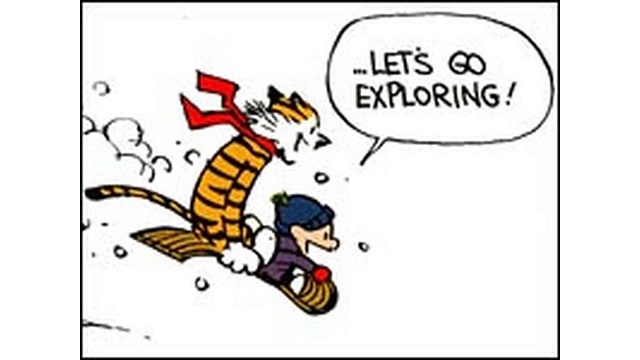If a Life Falls in the Forest and No One Is There to LIKE it, Does It Make a Sound?

Comes a time when you realize, you’re basically a straight-up Luddite, or at best the loyal opposition to the social media age, and you might as well embrace that and shout your point fearlessly into the tailwind of techno-utopianism.
To that end, I’ve been thinking about the posting addict, or the Facebook and Twitter compulsive. You know who you are…and if you aren’t. These are the people who share constantly, scores of times a day, if not more. Usually, the posts and tweets are ephemeral. They tell us what the Sharing Addict had for breakfast, or how the traffic was.
Children and their endearing malapropisms are good Facebook fodder. You’ll get lots of likes when you use family conversations as material for posts to amuse people (some of whom your kids have never met), and applauding comments about how brilliant and/or cute they are. Emotions online are sung about two octaves higher than the score of reality.
What accounts for compulsive posting, and is it a problem?
I’ve asked a few people why they post a lot, when it’s not expected for their professional lives, or for political activism. They usually answer that it takes so little time, and that it’s a good, efficient way to stay in touch, at least a little. And, they find it enjoyable to see who likes the comment, or comments on the comment.
I accept them at their word. But that mild, pro-social impulse doesn’t really explain why I’m seeing pictures of someone’s bowl of soup on my Facebook page, or why some don’t dare to eat a peach, as T.S. Eliot might observe, without letting Twitter know.
I wonder, to recall the koan, if a life falls in a forest and there’s no one there to LIKE it, does it make a sound?
I fear some social media mutation on vanity and voyeurism, one that compels people to look at themselves doing things, even crimes, and even sex, and to have an audience look at them as they do their living, such that they simply can’t stop. It feels too good, this admiring and looking at themselves, this ongoing curation of the self in the motion of doing its normal, quotidian activities, so that it becomes a needful thing.
Otherwise, how to explain the compulsion toward banal sharing. Or, the inscrutable impulse for rapists to self-incriminate by posting details of their assault online (more troublingly, perhaps they feel they’ve done nothing wrong), and young women who agree to have their boyfriends tape them having sex—which, as sure as night follows day, becomes fodder to be posted on social media “revenge” sites against them when, as sure as night follows day, the relationship ends?
I get it, in one sense. Looking at memories of things done, even things just done two seconds ago, can be more satisfying than the event itself, since the living of life often demands a great deal of energy from us, even when we’re enjoying ourselves, but the memory of living that life demands much less.
Maybe social media addicts mostly wanted reassurance, affirmation, and figurative “likes” from their real-life friends in the pre-Facebook age. They had a vanity jones, in other words, perhaps grounded in insecurity (if they’re good looking, we tend to say they’re insecure) or perhaps grounded in malignant narcissism (if they’re not good looking, we tend to say they’re arrogant). Now, the compulsive poster doesn’t need as many face to face confidants to satisfy the vanity jones.
An hours-long, ongoing, spontaneous conversation with a friend is a laborious dissertation in comparison to the rebus-like declarations and telegraphic effusions or take-downs of Twitter. Social media is a more efficient, fast-food affirmation.
Is all this a problem? Most likely, yes.
A woman who was part of a group of tight-knit friends in college innocently strolls through Facebook one day, and gets hit over the head with the emotional two-by-four of having to see a photo of all of her tight-knit group of friends at a reunion—everyone but her.
Let’s say you have a friend, actually a close friend, and one you’ve known for a really long time. Before Facebook, you saw each other fairly regularly.
It’s not the same now. Clearly, the close friend is still around, and still has time to do fun, social things. You know this, because she posts obsessively. She posts pictures of herself with other friends, at parties. She posts photos of the food she’s about to eat. She posts self-admiring updates about marriage, her husband, and family.
What used to be known as bragging is now the currency of a social life.
It’s possible that you’ve alienated the friend, or that she’s bored with the friendship. It’s also possible that Facebook and Twitter create the simulacra of contact, such that a friend genuinely feels as if she’s dispatched a social duty by posting about her commute, or another post to remind her followers, some of whom barely know her, about how much she loves her husband.
In her mind this might constitute being “in touch” with friends.
If you think this, be warned: many of us don’t consider the reading of these posts an act of being in touch with you. Not at all.
Social media is reconfiguring some of the basic concepts that undergird friendship, concepts of obligation, reciprocity, contact, availability, exclusivity, intimacy, and, in the examples here, good friendship hygiene.
I don’t want to be the authenticity fogey. Nor am I arguing that social media isn’t in some ways quite real. I also like it, in its place.
But it lacks many of what have been for millennia the signature features of friendship and social bonding. It lacks depth: the information shared is too public and often trivial for that. It lacks selectivity: all friends, be they people the poster has never met, or spoken to, or parents and former best friends, are getting the same information, assuming that the poster, as most often seems to be the case, isn’t using a private group setting. If everyone is a friend, then no one is a friend. Social media lacks one on one intimacy, by its nature. It lacks privacy and discretion: a personal Greek chorus witnesses your communication. And it lacks that messy, delicate, unpredictable but friendship-sustaining quality of entanglement: When you’re at dinner with a friend, you can’t as easily walk away or flip off the smartphone when things get boring, uncomfortable, or socially taxing.
And more to the point: why in the world do you think we want to see a photo of your soup?





